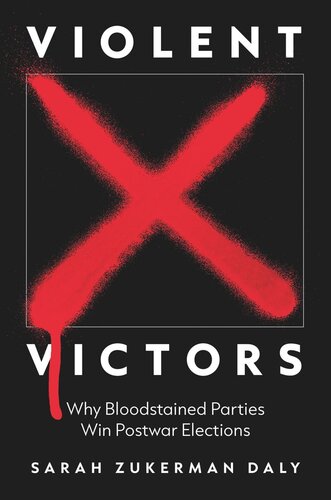

Most ebook files are in PDF format, so you can easily read them using various software such as Foxit Reader or directly on the Google Chrome browser.
Some ebook files are released by publishers in other formats such as .awz, .mobi, .epub, .fb2, etc. You may need to install specific software to read these formats on mobile/PC, such as Calibre.
Please read the tutorial at this link: https://ebookbell.com/faq
We offer FREE conversion to the popular formats you request; however, this may take some time. Therefore, right after payment, please email us, and we will try to provide the service as quickly as possible.
For some exceptional file formats or broken links (if any), please refrain from opening any disputes. Instead, email us first, and we will try to assist within a maximum of 6 hours.
EbookBell Team

4.3
98 reviewsWhy populations brutalized in war elect their tormentors
One of the great puzzles of electoral politics is how parties that commit mass atrocities in war often win the support of victimized populations to establish the postwar political order. Violent Victors traces how parties derived from violent, wartime belligerents successfully campaign as the best providers of future societal peace, attracting votes not just from their core supporters but oftentimes also from the very people they targeted in war.
Drawing on more than two years of groundbreaking fieldwork, Sarah Daly combines case studies of victim voters in Latin America with experimental survey evidence and new data on postwar elections around the world. She argues that, contrary to oft-cited fears, postconflict elections do not necessarily give rise to renewed instability or political violence. Daly demonstrates how war-scarred citizens reward belligerent parties for promising peace and security instead of blaming them for war. Yet, in so casting their ballots, voters sacrifice justice, liberal democracy, and social welfare.
Proposing actionable interventions that can help to moderate these trade-offs, Violent Victors links war outcomes with democratic outcomes to shed essential new light on political life after war and offers global perspectives on important questions about electoral behavior in the wake of mass violence.